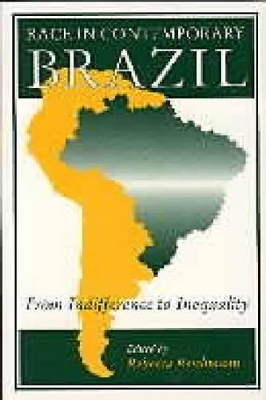Brazil’s traditionally agrarian economy, based initially on slave labor and later on rural labor and tenancy arrangements, established inequalities that have not diminished even with industrial development and urban growth. While fertility and infant mortality rates have dropped significantly and life expectancy has increased during the past thirty years, the gaps in mortality between rich and poor have remained constant. And among the poor of different races, including the 45 percent of Brazil’s population identified as preto (“black”) or pardo (“brown”) in the official census, persistent inequalities cannot be explained by the shortcomings of national economic development or failure of the “modernization” process.
Reichmann assembles the most important work of Brazilians writing today on contemporary racial dynamics in policy-relevant areas: the construction of race and color classification systems, access to education, employment and health, racial inequalities in the judiciary and politics, and black women’s status and roles. Despite these glaring social inequalities, racial discrimination in Brazil is poorly understood, both within and outside Brazil.
The still-widespread notion of harmonious “racial democracy” in Brazil was first articulated by anthropologist Gilberto Freyre in the 1930s and was subsequently reinforced by the popular media, social observers, and scholars. By giving voice to Brazilians’ own interpretations of race, this volume represents an essential contribution to the increasingly international debates about the African diaspora and comparative constructions of race.
- ISBN10 0271019069
- ISBN13 9780271019062
- Publish Date 15 August 1999 (first published 1 August 1999)
- Publish Status Active
- Publish Country US
- Imprint Pennsylvania State University Press
- Format Paperback (US Trade)
- Pages 304
- Language English
